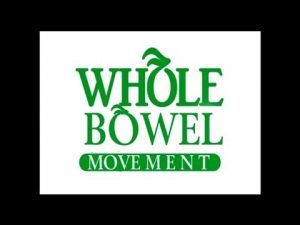When you’re the second richest guy on the planet, what do you pick up when you go to the shops for a little retail therapy?
 Buy Whole Foods for $13.4 billion (U.S.).
Buy Whole Foods for $13.4 billion (U.S.).
That’s what Jeff Bezos, the head of Amazon, with a personal wealth of $84.7 billion, did on Friday on his way home with some all-organic crap bread, cheese and ice cream.
I’d be more like Jimmy Buffett: “I went to Buckhead to get some ice cream and next thing I knew I was on I-75 headed for Florida.”
According to Michael J. de la Merced and Nick Wingfield of The New York Times the Amazon deal marks an ambitious push into the mammoth grocery business, an industry that in the United States accounts for around $700 to $800 billion in annual sales. Amazon is also amplifying the competition with Walmart, which has been struggling to play catch-up to the online juggernaut.
For Whole Foods, the deal represents a chance to fend off pressure from activist investors frustrated by a sluggish stock price. Whole Foods last month unveiled a sweeping overhaul of its board, replacing five directors, naming a new chairwoman and bringing in a new chief financial officer. It also laid out plans to improve operations and cut costs.
Forget all the organic, sustainable, dolphin-friendly products: Whole Foods is a cut-throat business that attracts gullible consumers to drop extra cash on food with a lot of adjectives.
A couple of centuries ago they would be called hucksters, or medicine-men.
 With Amazon, Whole Foods gets a deep-pocketed owner with significant technological expertise and a willingness to invest aggressively in a quest for dominance.
With Amazon, Whole Foods gets a deep-pocketed owner with significant technological expertise and a willingness to invest aggressively in a quest for dominance.
Amazon has designs on expanding beyond online retail into physical stores. The company is slowly building a fleet of outlets, and much attention has been focused on its supermaket dreams. It has already made an initial push through AmazonFresh, its grocery delivery service.
The e-commerce giant has been testing a variety of other retail concepts. It has opened a convenience store that does not need cashiers, and has explored another grocery store concept that could serve walk-in customers and act as a hub for home deliveries.
Under the terms of the proposed deal, Amazon would pay $42 a share for Whole Foods, a 27 percent premium to Thursday’s closing price. After the deal was announced, shares of Amazon rose as much as 3.3 percent while other major retailers, including Target, Walmart and Costco Wholesale fell sharply.
Whole Foods, which was founded in 1978 in Austin, Tex., is best known for its organic foods. The company built its brand on healthy eating and staked its reputation on fresh, local produce, albeit with a high price tag.
But the company has increasingly faced fierce competition from rival supermarkets. National retailers like Costco, Safeway and Walmart have begun offering organic produce and kitchen staples, forcing Whole Foods to slash prices.
